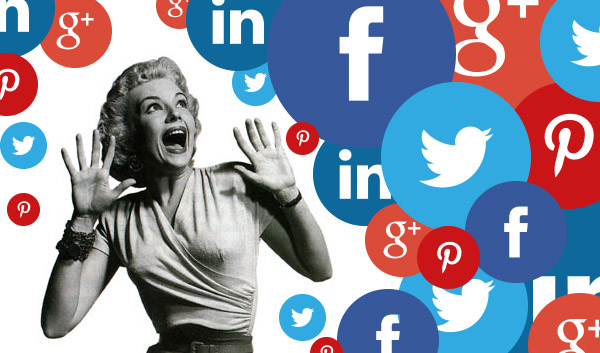Social Media: the Imitation Game

October 13, 2016
A quick scroll down your social media feed can wield you an array of content, connecting you to the outside world. Whether it’s recipes, news stories, or the latest memes– social media sites can be the perfect soil for new ideas and creativity to grow. They have allowed our generation to be more connected than ever before. While social media is truly one of the greatest inventions of our time, it can be detrimental in ways we don’t usually notice.
Typically when talking about the pitfalls of social media, we focus on cyber bullying and a loss of connection to the outside world, but the issues within these sites can often go a lot deeper. Everything we see in our everyday life has the power to affect who we become, so when we allow ourselves to mindlessly scroll for hours, we are allowing this information to mold our personalities. Psychology Today states, “The adolescent years of your life can be some of the most impressionable ones that you will ever have… These years mark insurmountable growth both physically and psychologically.”
Some social media use can be very beneficial to us– subscribing to people that make you feel inspired and happy, but others can be harmful– actors, models, and others can hurt our own self image the more we expose ourselves to their content. We create images of what their lives must be like based on updates posted throughout the day. We are slowly taking away their humanity by putting them on pedestals. French researchers from Institut Pluridisciplinaire Hubert Curien, in 2013, found, “The more time we spend on social media sites comparing ourselves to others, the more depressed we get. We forget to take into account that a lot of what we are seeing is carefully chosen to appeal to us. Even our own friends and family tend to only post the best versions of themselves.” We see the perfect pictures and forget there were probably 50 shots before with half closed eyes, weird shaped arms, and other ‘mishaps.’
Like celebrities, we often find ourselves doing the same thing to our followers. Social media has allowed us to post pictures of our fun trips to Disney– but when the trip to Disney was accompanied by fighting with your parents or standing in 4 hour lines, the portrayal isn’t truthful. That isn’t to say we should start posting every time we cry of sadness along with when we cry of happiness, but we should worry less about if a post is perfect enough for people to see and more about what it is saying. Ray Williams for Psychology Today said, “Our posts, pictures, and activities are like virtual possessions or pieces of ourselves… It keeps us in a place where we equate self worth with stuff, even if the ‘stuff’ in this case, is our social media profiles. Since we use social media to get attention, it can be hurtful when we don’t get that attention. We can equate that attention with approval or self worth.”
I’m not trying to get us all to delete our social media, or saying it’s all negative; rather am posing a challenge. I challenge you to unfollow all those people you find yourself idolizing, or putting on a pedestal. Those you aspire to be, which is dramatically different than those that inspire you to be you. I challenge you to post things that may not look the best, but that in the moment made you feel the best; I challenge you to focus less on how pretty your feed is and focus more on if your feed is an accurate representation of who you are.
Caroline Caldwell once tweeted, “In a society that profits from your self doubt liking yourself is a rebellious act.” We need to stop putting so much energy into seeing those numbers grow, and more into seeing ourselves grow– as productive and powerful members of the community.








